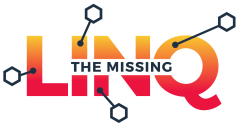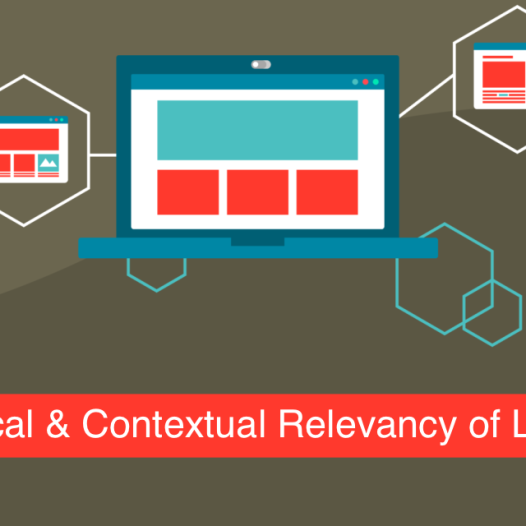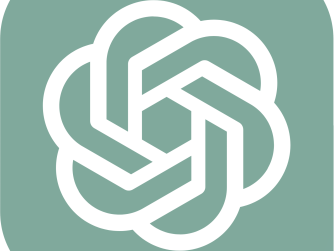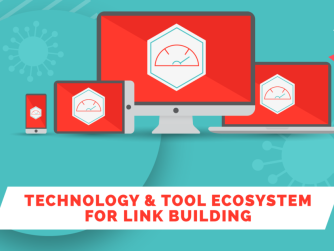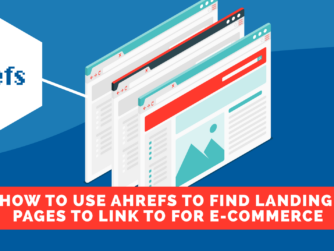The State of Link Building report for 2022 surveyed almost 300 digital marketers, and asked the question “what attributes of link building do you focus on when it comes to positively influencing organic search ranking?”
72% answers “links from sites specifically relevant to your niche.”
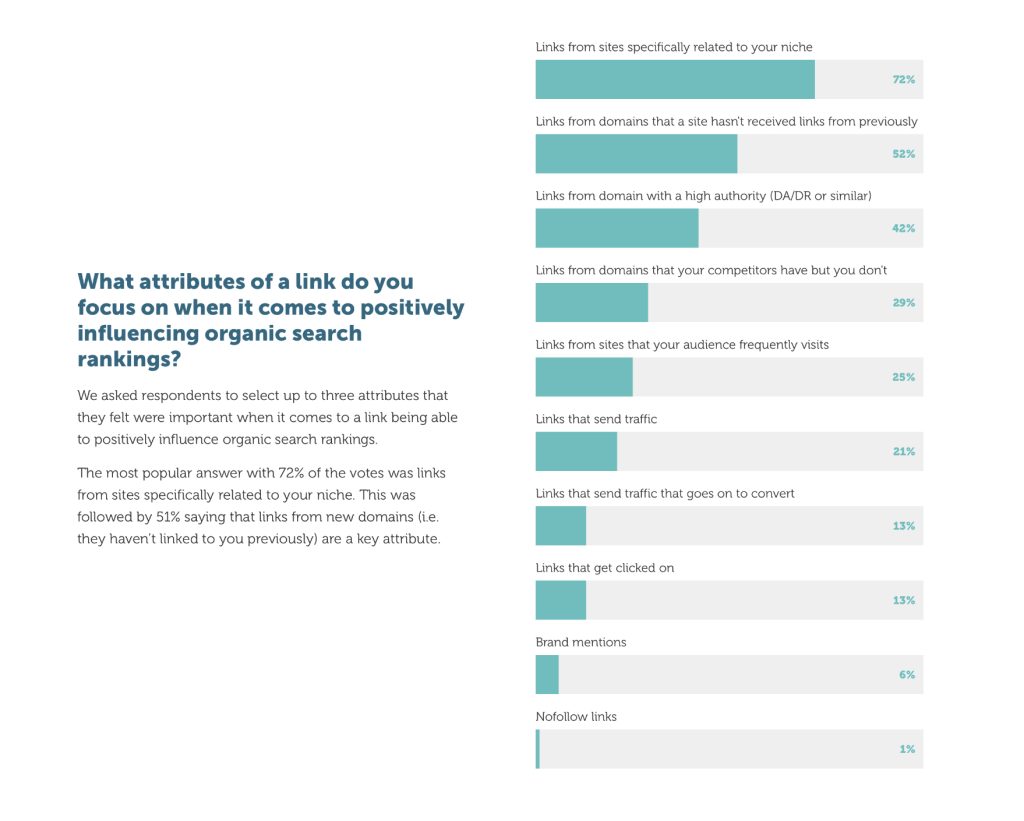
This is absolutely no surprise. I’ve been pushing the idea of contextual or topical relevancy hard since 2016ish.
But, the topical relevancy of a link profile is much more important and complex than you think.
I’ve spent a lot of time analyzing link profiles for sites that have that hockey-stick exponential growth and I see a large diversity in site niches.
Types of Relevancy?
There are a few important concepts floating around that we need to clarify on:
- Topical relevance
- Latent Semantic Indexing (LSI)
- Contextual relevance
Topical relevance: Majestic.com has a useful tool to bulk check “topical trust flow” and large portion of the SEO industry uses it to speed up the process of identifying a site’s topic.
Majestic states “The Topical Trust Flow of a link is a misnomer. It is URLs (or sites) that have Flow Metrics, so a link must connect two different points with two different sets of Flow Metrics.”
So topical relevance is what topics the domain, section, and URL are about.
Latent Semantic Indexing: Do you remember when everyone was obsessed with Latent Semantic Indexing (LSI)? This is different than contextual relevancy.
In this insanely thorough article by SEO by the Sea, the late Bill Slawski explained that this is the relationship between keywords on how they relate to each other.
This is a complex topic as Google uses NLP and AI now and the importance of LSI is questionable.
Contextual relevance: Merriam-Webster defines context as “the parts of a discourse that surround a word or passage and can throw light on its meaning.” So context is a layer deeper than “topic” and the meaning behind the articles and their relationship to one another.
There are 4 levels of topical/contextual relevancy:
The State of Link Building survey assed “what factors do you think are most important when determine whether a link is topically relevant or now?” The #1 answer was the page or URL-level.
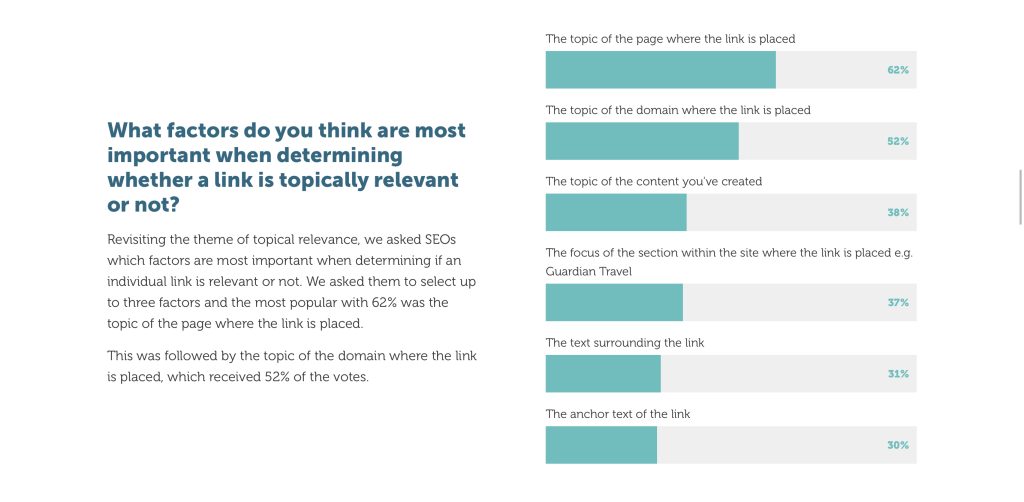
I frequently hear that people want links from sites that are specific to the niche they are in. For example, a payday loan company may want links from personal finance sites.
These types of sites are ideal, but drastically reduces the scalability of the program. I have found that the top ranking sites in competitive niches get links from a wide variety of site niches to the domain as a whole and directly to specific URLs.
To make your link building more scalable but still staying contextually relevant, here are ways to evaluate select sites.
Domain-level: This is the niche of the site. Example, a site for sports betting niche may want to find links on sports or betting sites about the NFL. These are typically few and far inbetween.
Section-level: You can find a lot of great sites that cover various topics, but have a relevant section. These will likely make up a majority of your link profile.
URL-level: Sometimes a site doesn’t have a stated section that is contextually relevant but will publish a lot of articles that mention relevant keywords. These take more time to find, but are a treasure trove of opprotunities.
Paragraph-Level: Finally, the paragraph’s context is important also. You can find existing listical or local articles to secure links in that have a sub-section that mentions a competitor or a relevant keyword. If you are struggling to get links from unique domains then these are an am amazing option to scale.
You want to weight all of these as there is no one important factor.
Tools for Identifying relevancy
There are a lot of tools that can help reduce the time categorizing sites, and some are more manual than others. These are just a few that I know work.
When I say “tools” I mean ones that have a built in scoring system to determine standardize categories.
Tools for categorization
Majestic.com has the Topical Trust Flow that goes beyond a simple categorization to provide a scoring to how relevant the links are to that topic.
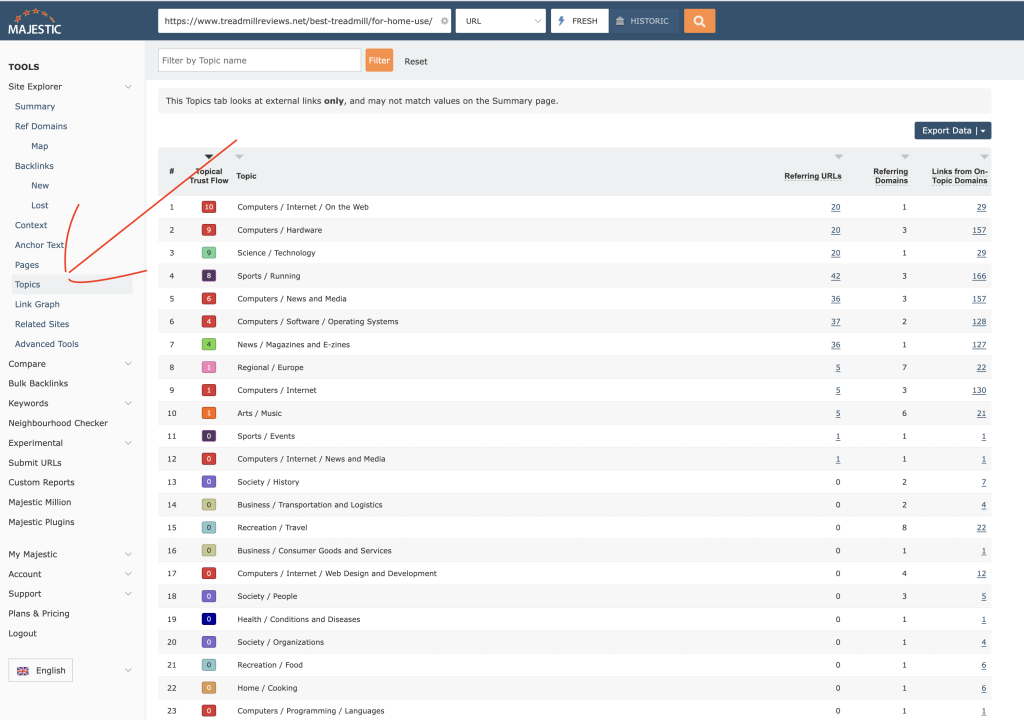
Market Minner is a more basic tool and provides site type categorization over contextual categories.
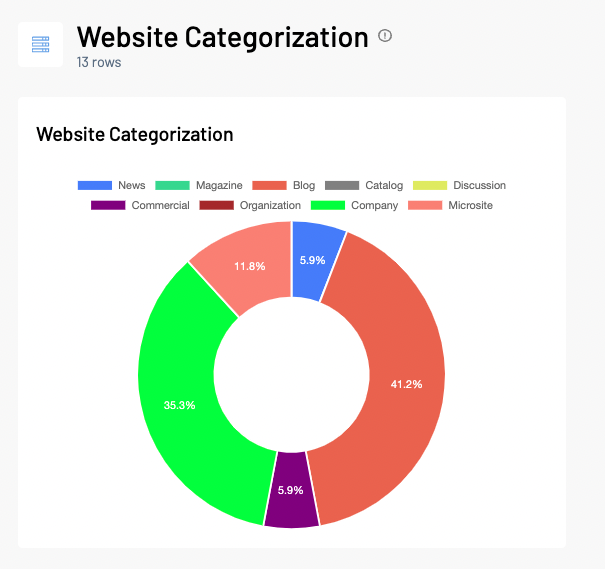
Whois XML has a website categorization tool that has machine learning to help in the categorization process. However, you’ll need to know how to code to access it.
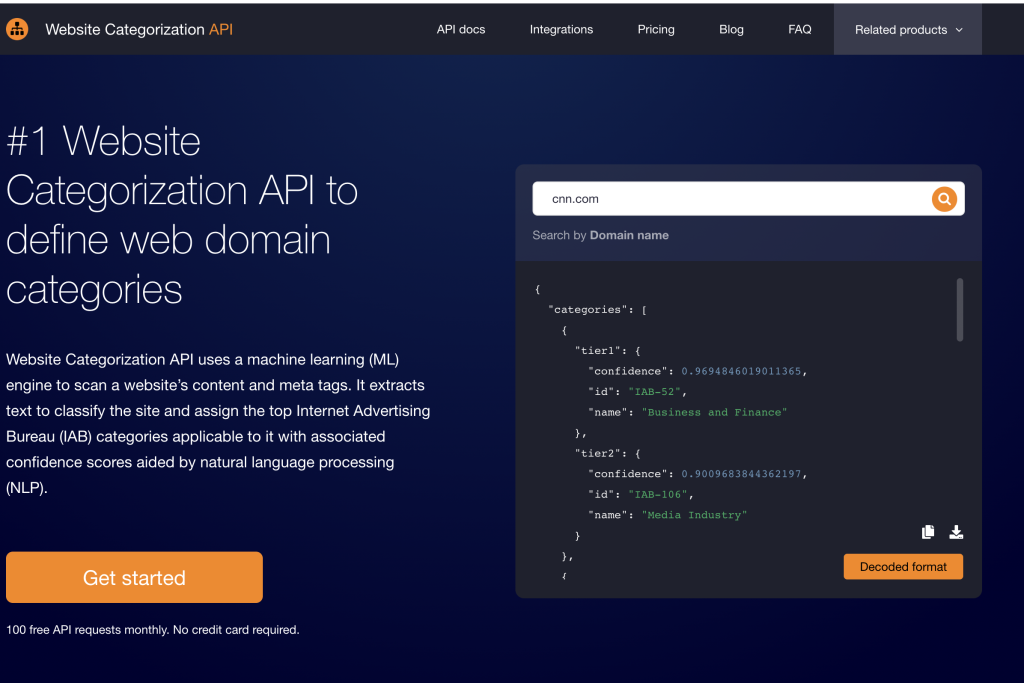
Screaming Frog is well know for being able to crawl sites, but the have you tried the site architecture visualization tools. The tool doesn’t categorize base on context or keyword, but has some uses still.
Once you have crawled the site, Screaming Frog will automatically group content based on the URL structure. So you can very quickly glance over the content in each hub. But this is going to be a very manual review.
Concluding the categorization hunt
As you can see, identifying the contextual relevancy of a prospective site, for link building, is important but also can be a much larger time-suck than you may have thought.
In order to reduce time on finding and categorizing your sites to determine their contextual relevancy you’ll want to automate as much as possible for the initial list vetting. But then a manual review will still be needed if you’re looking for a specific page to secure a link on.
